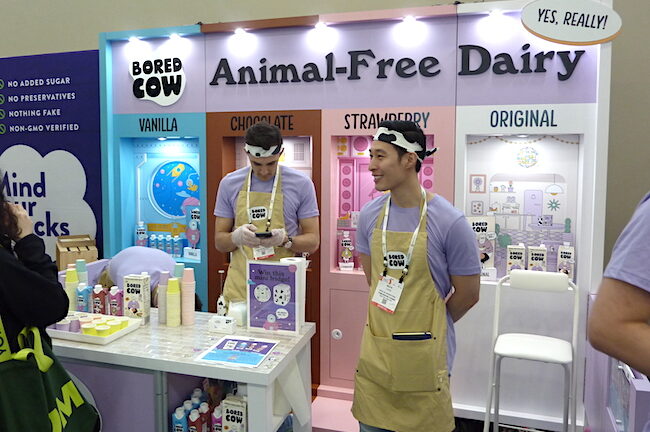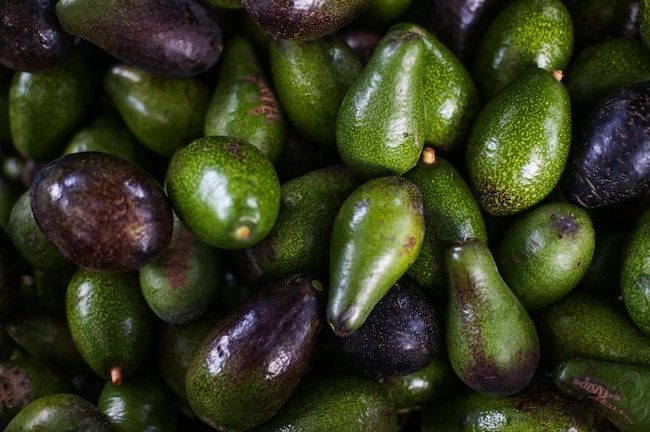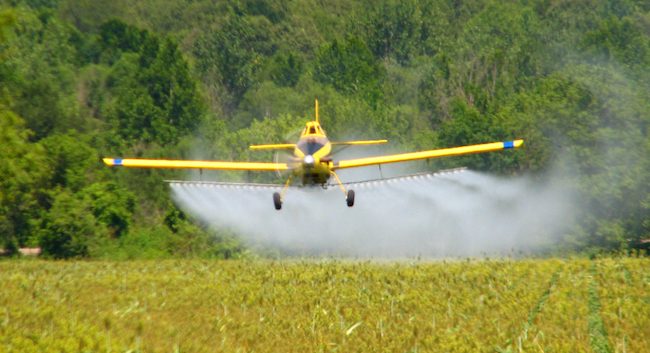
Organic Insider Newsletter Archive
Easily search through our newsletters, by keyword or topics
Topic: GMOs - Count: 28


Gene Editing is GMO -- Contrary to What Governments, the Media and Companies are Telling Us
The propaganda campaign around gene-edited foods has reached an entirely new level.

Genetically-Engineered Microbes Pose an Unspeakable Risk, But Most People Won't Tell You This
Only when publicly-traded GMO 2.0 companies are forced to disclose the risks do we have a clear picture of just how big they are.

The Playbook for GMO 2.0 is Going Exactly to Plan, Brands Step in to Combat it
Sophisticated terms, such as synthetic biology and precision fermentation, are purposely used to confuse consumers.

Deceptive GMO-Labeling Rule Goes into Effect on January 1st, Lawsuit Seeks to Reverse it
Not surprisingly, the government has failed to prioritize the interests of consumers.

EPA Displays Alarming Lack of Transparency When Approving GE-Mosquitos, 1B+ Set to be Released in Florida and Texas
The way our government is approving risky GE technologies should have us all very concerned.

USDA’s New Framework for GMO Regulation Completely Ignores the Well-Being of American Citizens, Ensures the Pesticide Treadmill will Strengthen
This new GMO regulatory framework is a very dark moment for American agriculture. The USDA must impose strict regulations on GMO crops.

Court Rules that Gene Editing is the Same as GMO, FDA Believes it Should be Regulated
Recent developments cast a much bigger shadow on gene editing.

Using RNAi Silencing Technology, a New GMO Cotton makes the Case for Organic Cotton Stronger -- and More Urgent -- Than Ever
With the FDA's approval of GMO cotton for human consumption, the need for consumers to embrace organic cotton has never been greater or more urgent.

How the Ag-Biotech Industry is Attempting to Manipulate Public Opinion with Unproven Genetically-Engineered Chestnut Trees
The ag-biotech industry is on the verge of gaining approval for a very risky and unproven genetically-engineered American chestnut tree, which would open the floodgates for a host of other GE-trees, creating a potential environmental disaster.

The Misinformation Campaign of Gene-Edited Foods Has Begun
As gene-edited food products begin to reach the marketplace, the companies behind them are embarking on a PR campaign to erroneously convince consumers that these foods are not GMOs.

Potatoes Have Landed on the Non-GMO Project’s High-Risk List – What This Means and What You Need To Know
The Non-GMO Project has placed potatoes on its High-Risk list. We discuss what this means and what you need to understand when shopping at the supermarket.

The Inventor of the GMO Potato Comes Clean
Caius Rommens, the inventor of the GMO potato, comes clean and discusses the hidden health dangers of this genetically-modified food.

A New Study Shows Just How Disruptive the New Bioengineered Labels May Be
As the USDA is getting ready to roll out new federal GMO-labeling standards, a recent study by the International Food Information Council Foundation has shed light on just what kind of impact these proposed standards may have. Needless to say, the results are quite compelling for organic advocates.

Recent Actions by the USDA and FDA Should Worry Organic Advocates, More Industry Involvement is Needed
With two recent actions out of Washington, D.C., the organic community should be very alarmed. Much deeper and aggressive involvement is needed from organic companies to protect the long-term interests of our industry.

European Union Rules that Gene-Edited Crops Must be Regulated like GMOs -- What this Means for Policy in the U.S.
The EU's top court made a landmark decision as to how it will regulate gene-edited foods. We take a look at why this ruling was so important for human and environmental health, and how this will impact the regulatory environment in the U.S.

Deadline to Comment on GMO-Labeling Standards is Tonight at Midnight
The deadline to comment to the USDA about the proposed GMO-labeling standards is tonight at 11:59pm EST. The standards have many problems and are very confusing and misleading to consumers.

What the Proposed GMO-Labeling Standards Seem to be Telling Us
As the eagerly awaited proposed GMO-labeling standards were released last week -- also known as the National Bioengineered Food Disclosure Standard -- the most interesting aspect of these regulations was what they did not say. I discuss what may be really happening behind closed doors.

The Fight to Keep GE-Salmon Off of Our Dinner Plates is a Complicated and Uncertain One
While there has been a lot of discussion about GE-salmon ever since it was approved by the FDA in 2015, the fact remains that it is still not on the market. We examine all of the factors that explain this and ask the question -- will it ever be for sale in the U.S.?

As Both an Industry Leader and a Vegan, David Bronner Shares an Important Perspective on the Impossible Burger
David Bronner is the CEO of Dr. Bronner’s and one of the most influential and actively engaged leaders in the organic industry. When it comes to taking a stand on important social and environmental issues, I do not believe there is another company in our industry that has stepped up more than Dr. Bronner’s. The company has given millions to...

All Forms of Genetic Engineering Must Require Labels
As the USDA prepares to roll out its GMO-labeling law, which goes into effect in 2018, it is seeking input from stakeholders and has posed 30 questions regarding key issues of this bill. In my conversation with Michael Hansen, PhD, here are the things that this new law should address.

Genetically-Engineered Trees and Genetically-Engineered Moths Could Soon Be Invading Our Environment
Aside from the massive fraud issues that have surfaced as of late, we are now facing the very scary prospect of genetically-engineered trees and genetically-engineered moths pervading the American agricultural landscape, whose impact would be irreversible and catastrophic. Here is a quick recap on each and where things stand.

Genetically-Engineered Moths Just One Step Away from Being Released in New York State
The USDA’s Animal and Plant Health Inspection Service (APHIS) made the tragic decision of approving genetically-engineered diamondback moths. Here's why they won't be released just yet and what could stand in their way of being released into the wild.

Genetically-Engineered Moths Pose a Potentially Catastrophic Problem to the Organic Industry
If Cornell University scientist Dr. Anthony Shelton gets his way, 30,000 genetically-engineered moths will be released per week for three to four months, up to a period of two years in upstate New York. Here's a look at this very dangerous situation.
